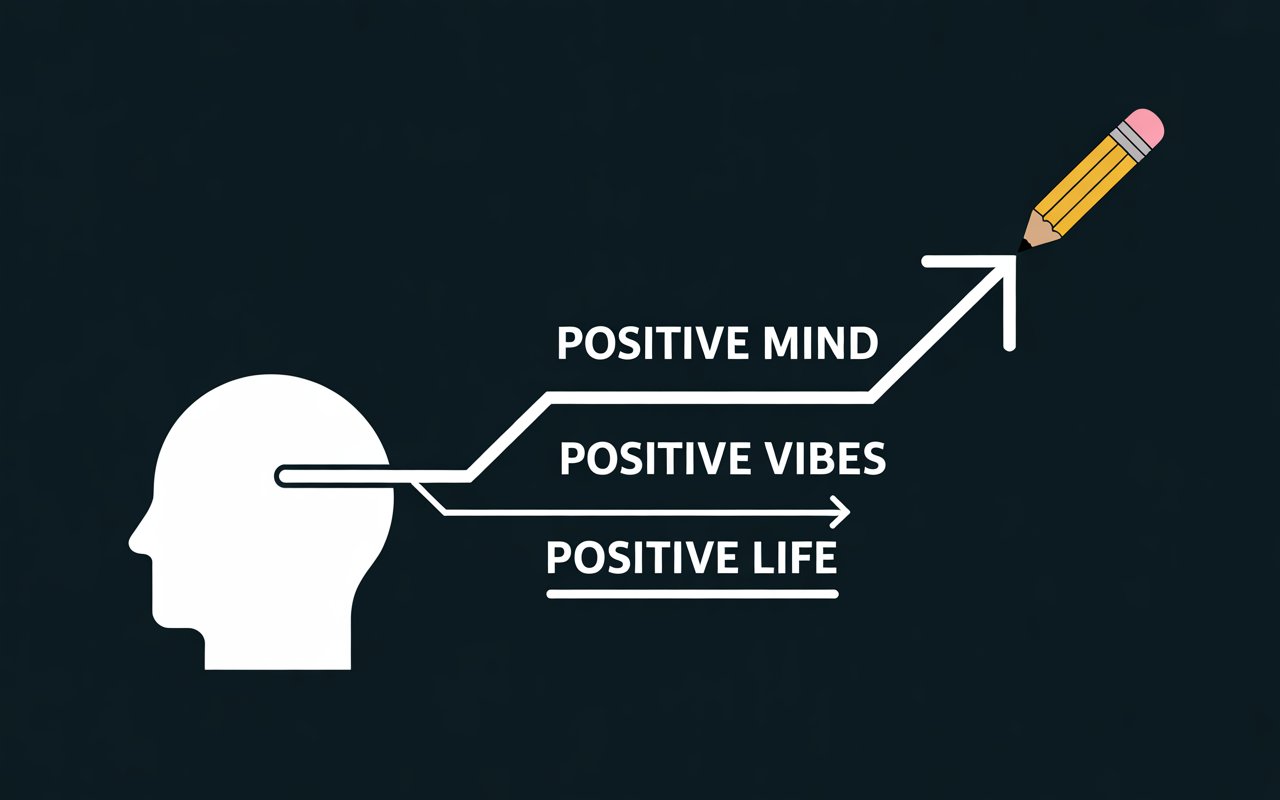Introduction
In today’s fast-moving world, it can be difficult to stay centered. Continuous alerts, a packed schedule, and daily pressures can easily trigger a restless mind. Whether you are a student, a professional, or someone looking to boost daily productivity, using effective ways to enhance your focus and concentration can make a big difference in your life. Incorporating these effective ways into your routine helps you stay more attentive and productive
Some think that there are special tools and medications that should be used to heighten their attention, yet they are not available. There are natural and basic tips that you can adopt to enhance your mental sharpness and focus. These practices are simple to adopt at no cost and can result in enhanced productivity, improved memorisation, and even improved mental health.
This article will present you with feasible and natural means of heightening focus and concentration without employing any complicated methods. Common sense lies behind each of these methods and helps to live healthily and be in balance.
Why Focus and Concentration Matter
Attention and concentration constitute important elements of nearly everything that we do. When you have a clear mind and you are focused, the tasks can be done, you may have the right judgment, and you may have more control over your day.
Effect on Productivity
Good concentration assists you in accomplishing more things in a shorter time. Regardless of whether you are at work, at school, or in general, you are at home completing those everyday chores, being able to keep yourself on track will result in fewer errors and wasted energy. As soon as your concentration is enhanced, you will work more effectively and your outcomes will not be as variable.
Role in Mental Health
There is a lot of strain and stress that could be caused by constant distractions and mental overloading. Alternatively, focus can help you feel calm and in control. It assists you to be in the current, and this benefits you emotionally. This has the potential to make you feel better balanced over time and can minimize mental fatigue.
Long Term Cognitive advantages
Brain health can be promoted with regular exercise in focus as you get older. As physical exercise keeps your bodily shape in shape, mental concentration keeps your mind alert. This may enhance memory, decision-making, and even safeguard against age-related mental impairment.
There is a lot of strain and stress that could be caused by constant distractions and mental overloading. Alternatively, focus can help you feel calm and in control. It assists you to be in the current, and this benefits you emotionally. This has the potential to make you feel better balanced over time and can minimize mental fatigue.
Long Term Cognitive advantages
Brain health can be promoted with regular exercise in focus as you get older. As physical exercise keeps your bodily shape in shape, mental concentration keeps your mind alert. This may enhance memory, decision-making, and even safeguard against age-related mental impairment.

Common Causes of Poor Concentration
The inability to stay focused is a problem for many people, yet the causes are different. The first important step to resolving your lack of concentration is to know the cause of the same. Some examples of the most frequent causes that may influence your staying focused are presented below.
Digital Distractions
The biggest distractions are Smartphones, social media, and constant notifications. Anything, however minor, can interrupt your thought flow and make it difficult to resume work. This may make you lose your focus in the long run and even decrease your productivity.
Sleep Deprivation
Lack of sleep has consequences for the functioning of your brain. Mental fatigue may result in cognitive confusion, thinking sluggishly, and not being able to focus. An exhausted brain finds it hard to be on the go, even in ordinary activities.
Unhealthy Food and Fluids
The food and liquids you consume can contribute immensely to the functionality of the brain. You might feel lassitude and lack concentration when you skip meals, have excessive amounts of sugar, or do not drink adequate amounts of water. An eating pattern that is balanced can assist in maintaining your energy and attention levels at a constant level throughout the day.
Mental Fatigue or stress
Your mind is more frenzied or under pressure, and therefore, it cannot concentrate. When your mind is occupied with several things at the same time, this can leave you quite disorganized. Burnout might also be caused by chronic stress that further compromises your concentration.
Proven Natural Methods to Improve Focus
Special tools and kinds of treatment are not always needed to improve focus. There are numerous ways of practice that only require changes of lifestyle, but which you can begin practising today. To train your brain naturally to remain lucid and on the edge, these are some of the methods without the use of medication.
Have a Regular Sleep Schedule
One of the simplest methods of increasing concentration is getting a good, adequate sleep each night. 7- 9 hours of sleep is the goal, and go to sleep and get up at the same time daily. Having a regular sleep pattern keeps your mind alert and improves mental functioning.
Do Mindfulness or Meditation
Mindfulness is the practice of being in the present moment. For example, practicing simple breathing or small daily meditations can help you gradually increase the time you can focus on something. Additionally, spending 5–10 minutes a day can make a difference in clearing your mind and providing a little stress relief.
Make Regular Breaks. Take Breaks Regularly
Mental fatigue may also arise as a result of working without resting. Short breaks can restore attention and make the mind more alert, like taking a 5-minute break after every 25 to 30 minutes. This is commonly referred to as the Pomodoro Technique, whose use is very common in order to be more productive.
Exercise Daily
Exercising leads to the blood circulation of the brain, thereby enhancing concentration and memory. You do not need strenuous games-a walk/a stretch, or a light exercise can last 20 to 30 minutes daily, and this will help.
Eat Brain-Feeding Fodders
The foods you intake influence your thinking. Add Omega 3 foods like walnuts, chia seeds, fatty fish to your diet, so as berries, green vegetables and whole grains. These foods are brain foods, providing sustained energy.
Stay Hydrated
Even mild dehydration can distract you and get you down. Be sure you stay hydrated by drinking enough water all day. The trick is to drink water as soon as you feel thirsty and to shoot for at least 8 – up to as many as 10 – 8-ounce glasses of water a day, depending on your exercise level.
Create a Distraction-Free Environment
The environment is also a major factor that determines your concentration. An overtly distracting environment can simply take your mind off whatever you are supposed to be doing. Small adjustments to the physical world around you can aid in creating a better focus and doing more work.
Clean up Your Office
A clean and tidy environment is another way in which you can allow your brain to remain settled. Take off your desk what you do not need. Retain only those items that assist you in performing your work, i.e, a notebook, pen, or computer. A no-nonsense arrangement serves to avert visual diversion and keep you on track.
Blocking Website or Focus tools
If you often lose focus because of websites or social media, use website and social media blockers while working to stay focused. The free browser extensions and apps are numerous and can aid you in focusing and restricting access to distracting websites and content over time.
Manage Notifications Effectively
Frequent distractions from your phone or computer will interrupt your concentration. It can be by turning off unnecessary notifications or using the devices in the Do Not Disturb mode. Otherwise, you can set time to go through mail or messages rather than responding to them when they come in.
Mental Exercises to Sharpen Concentration
In the same way, body exercises can make your body stronger, so can it be with your brain. Mental exercises can provide your brain with similar benefits to staying focused. These easy exercises are useful in enhancing concentration, memory, and focus on a task over time.
Brain Games, Reading, Puzzles
Crossword, Sudoku, or memory games are types of puzzles that stimulate your brain and get your brain thinking. Such activities cure problems and need focus, which can enhance mental alertness. Just reading books, especially without distractions, helps you create focus because your brain learns to concentrate and absorb information for a longer time.
Practicing Deep Work Techniques
Deep work describes the capability of an individual to engage with an uninterrupted task that is demanding. To practice this, use a timer and decide that you will work during a specific period–30 or 45 minutes–without stoppage. In the long run, this strengthens the capacity of your brain to focus over a longer duration of time and decreases the multitasking effect.
Shall I go on with the next section, Healthy Habits That Support Me
Healthy Habits That Support Mental Clarity
Losing focus is not just a brain issue but also a daily habit. Effective ways to improve focus include building good habits that sharpen the mind. All these effective ways help you concentrate better. By following these effective ways, you can stay more attentive throughout the day.
Limit Multitasking
The attempt to multitask may happen to decrease your focus. As you alternate one task with another, your brain has to adapt, and this may make you go slow. Rather, attempt to work on one thing at a time. This can keep you in the moment more and achieve improved outcomes.
Lead a Moderated Routine
A daily routine is what makes up the structure of your day and also lets your brain know what to anticipate. Consider work, rest, meals, and personal time. When you balance your day-to-day life, you can easily control stress and stay mentally alert.
Schedule Downtime
Relaxation is as close as work. Take time to rest and renew yourself-a quick walk, listening to music, or something that you love to do. Taking frequent breaks and time off the screens will clear your mind and feel more focused when you resume activities.
When to Seek Professional Help
Poor focus and concentration can, at times, be an indicator of poor health. When you discover that natural solutions do not work, and you remain or become impaired in your concentration capacity, it may be time to seek the attention of a healthcare expert.
Indicators to note are chronic memory loss, extreme inability to stay on task, feeling overwhelmed continuously, or mood fluctuations or behavior changes. Arsenals such as attention deficit disorders or anxiety, or depression may influence focus and need professional help.
First, reach out, as seeking help is a good step for improving your mental health. Then, guidance and treatment can be provided by a doctor or mental health expert. Finally, proper support helps you achieve better well-being.
Conclusion
You can simply get a better focus on concentration pretty easily, provided that you make small, steady changes. You can improve your mental clarity and productivity by making changes such as getting enough sleep, being mindful, and having a distraction-free workspace. With that in mind, remember that it is simply a matter of trying to discover what works best for you and improving a little at a time.
irst, pick up one or two techniques from this article and proceed to develop them. Then, with time, these small measures can help you stay focused, reduce stress, and remain in control of your day.
Frequently Asked Questions (FAQs)
1. Which are the most natural focuses?
Basic routines like proper sleep, meditation, hydration, exercise, and fewer distractions are effective ways to improve focus. These effective ways sharpen the mind, and following these effective ways consistently boosts concentration naturally.
2. What are the effects of sleep on concentration?
Insufficient sleep decreases brain activity, and it becomes more difficult to concentrate and process information. A steady 7-9 hour sleeping schedule not only keeps you mentally alert.
3. Is it true that diet can affect my concentration capacity?
Yes. Foods that support the needs of the brain, such as nuts, berries, and fish, ensure the brain has nutritious food to boost its health and even flower energy to enhance concentration.
4. So what is the Pomodoro Technique?
This time-management technique is an effective way to stay productive, working 25 minutes then resting 5. These effective ways prevent burnout and keep your mind fresh, making it an effective way to maintain focus.”
5. What warrants a doctor visit about focus issues?
When concentration problems continue to persist, using effective ways as natural remedies—or in cases of memory loss, mood changes, or severe attention loss seeing a doctor is a good idea.




